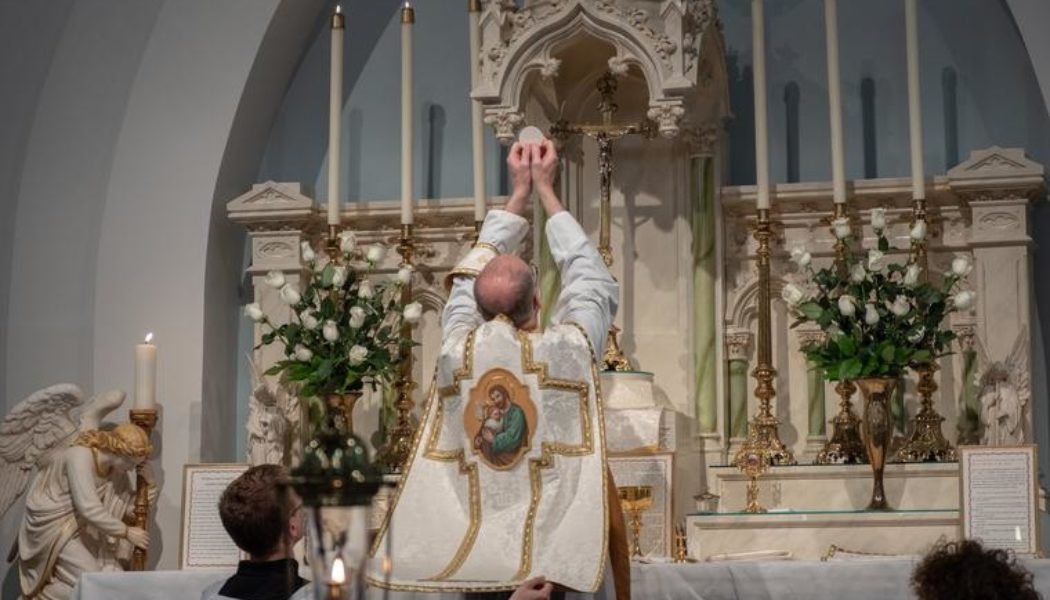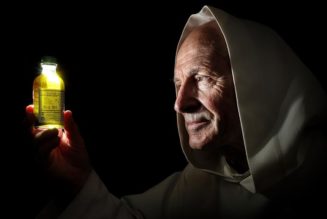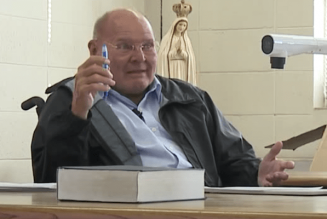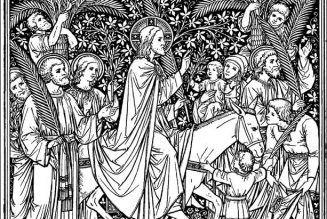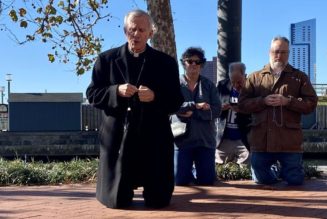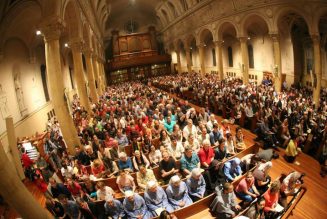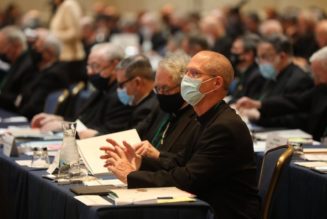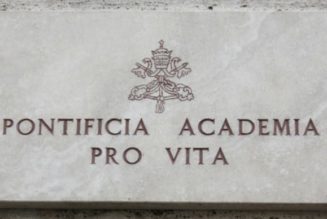
Among the many reforms and theological developments of Vatican II, perhaps none had a more direct impact on the life of the Church than the changes made to the Eucharistic Liturgy following the Council. One can perhaps excuse the ordinary Catholic for not being directly affected by the theology of the Council.
But the liturgy is the most immediate encounter with the Church that the average Catholic has, and so it is understandable why it is precisely the liturgy that has become the flash point for so many acrimonious debates within the Church.
Therefore, in this era of “synods,” might I be so bold as to suggest that, instead of a “synods on synods,” Pope Francis should instead convene a “Synod on the Liturgy” where all voices can be heard. After all, a synod on synods seems like a rather specialized theological discussion that, quite frankly, seems irrelevant to most Catholics, which is perhaps why only 1% of Catholics worldwide even bothered to participate in the listening sessions.
It seems to me that there is nothing more “local and synodal” in the Church than the liturgy, which is, as Vatican II taught, the source and summit of the entire Christian life (Lumen Gentium, 11). In other words, where the Eucharist is, there is the Church in nuce. Therefore, an unhealthy liturgical situation in the Church argues against the very possibility of healthy synodality.
Sadly, the pontificate of Pope Francis shows no indication that a real dialogue on the liturgy is anywhere on the horizon. This is a real shame, on many fronts, not the least of which is that it seems to contradict the Holy Father’s many repeated claims of desiring a full and open dialogue within the Church on any number of issues.
He often speaks of a process of open dialogue he calls parrhesia, which is a Greek term that denotes a form of conversation where all voices can be heard without fear of repercussions and reprisals. He also speaks of reaching out to the “peripheries” in order that nobody be made to feel as if there is no room in the Church for them.
So why not a synod on the liturgy so that all parties could come together in order to discuss as adults this most important aspect of the Church’s life? What could be more important to the life of the Church than a bit of parrhesia on the liturgy?
However, the Holy See seems to have adopted the contrary policy that there really can be only one point of view with regard to liturgy, and that is the notion that the reformed Mass of Paul VI is completely unproblematic and in no need of further reform. Therefore, all contrary voices are to be suppressed and declared out of bounds. This became clear in some recent comments by Pope Francis on why he felt the need to suppress the old Mass. While on his recent trip to Hungary, he made the following comments with regard to why he decided to restrict severely the celebration of the traditional Latin Mass:
“After all the necessary consultations, I decided this because I saw that the good pastoral measures put in place by John Paul II and Benedict XVI were being used in an ideological way, to go backward. It was necessary to stop this indietrismo, which was not in the pastoral vision of my predecessors.”
Indiestrismo is a term invented by Pope Francis that roughly translates as “backwardism,” and he uses it to describe those devoted to the old Mass as “backwardists” stuck in a dangerous pathology of ecclesial nostalgia. He correctly notes that there are those in the traditionalist movement who had turned the old liturgy into an “ideology.”
But he then incorrectly, and with an utter disregard for his own stated aims of “reaching out to the peripheries,” paints the entire movement with this broad brush, which is incorrect and, therefore, deeply counterproductive, pastorally speaking. And is there not more than a hint here of a deeper theological agenda at play, where the real crime of the “backwardists” is not that they love the old liturgy so much as they reject the post-conciliar progressive project? Yes, their response to this agenda is often simplistic and too scorched-earth, but what pastorally sensitive person can just ignore their lament unless they have skin in the game?
Such a move will not quiet the liturgical wars of the past 60 years but will in effect only exacerbate them. Because if we have learned anything in all of these debates, it is that you cannot eliminate the desire of millions of faithful Catholics for beautiful and reverent liturgy through an act of papal fiat.
Who can deny that there are many, many priests who have turned the Novus Ordo into an ideology besotted with modern nostrums about “fellowship” and “inclusion”? How many decades of this kind of ideological misuse of the Mass, where the liturgy becomes the experimental playpen for avant-garde priests, do the suffering faithful have to endure before the Pope takes notice? For example, are not the currently popular “rainbow Masses” themselves shot through with a distorting ideology more in tune with the sexual revolution than the actual faith of the Church? Pope Francis has said he opposes such “ideological colonization” and yet there are as yet no motu proprios designed to suppress such aberrations.
It is precisely this ideologizing of the Mass of Paul VI that has led to a mini-rebellion from faithful Catholics who voted with their feet and who sought succor in a Mass that fed them more profoundly. What is needed now are not more disciplinary actions against such people but a warm papal embrace and a disciplined papal effort to be more inclusive toward such people.
Pope Benedict XVI noted that the older Mass, which he referred to as the “extraordinary form,” was never officially suppressed and that he was merely expanding upon allowances already begun by Pope John Paul II. It is clear that Pope Benedict’s aims were therefore both theological and pastoral. Many theologians hoped that these measures would lead to a cross-fertilization between both forms of the single Roman Rite, which would in turn lead to the quelling of the heated “liturgical wars” that had so divided the Church for decades.
But this did not happen; and, unfortunately, many radical traditionalists took to social media and other more scholarly venues to weaponize the traditional Latin Mass against the Novus Ordo, with constant denigrations of the Mass of Paul VI as an inferior liturgy that was a rupture with the past and was an altogether “different” liturgy designed for a “new” religion that was not Catholic.
The further claim was made by the most radical of the traditionalists that the Mass of Paul VI was deliberately designed by a cabal of heterodox theologians in order to “Protestantize” the Catholic Church. Many Latin Mass communities took on an air of superiority as the true remnant of true Catholicism as opposed to those crypto-infidels who attended what were dismissively called “Novus Ordo parishes,” as if these were utterly deficient communities lacking in true faith.
But these are not the dominant views of most Catholics who desire a more elevated liturgy any more than hyper-progressivism is the dominant view of most Novus Ordo worshippers. And it is a grave pastoral mistake, in my view, to not take their concerns seriously and to treat any discontent over the Mass of Paul VI as simply rank disobedience rooted in a false nostalgia.
I attend an Anglican Ordinariate parish — and for many of the same reasons that many of my fellow Catholics have sought out the old Mass; because the sad reality is that, despite the many good things about the Mass of Paul VI, its actual practice in many parishes is severely lacking in the kind of mystical transcendence and elevated beauty that many Catholics desperately need and desire. And that does not even take into account the many liturgical abuses that still abound and which the hierarchy, including the Pope, seem unwilling to address in a meaningful way.
But this is precisely why I think that the Church, rather than plugging its ears and closing its eyes to such debates, desperately needs instead to open its ears to the liturgical issues at hand. Because they are not going to go away, and no motu proprio can change that. Dear Holy Father, we do indeed need and want a Church that listens. And a synod on the liturgy that is not a preengineered conclusion in search of an argument is desperately needed.
